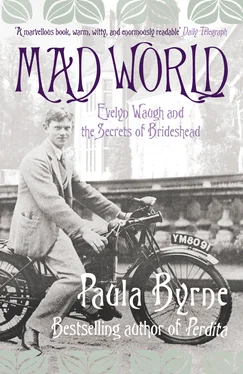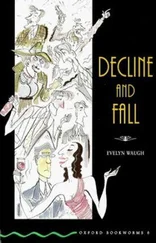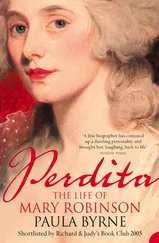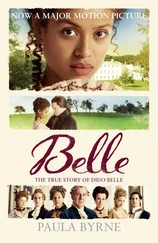1 ...8 9 10 12 13 14 ...26 Eton College was at the pinnacle of the English social system. It had received its royal charter in 1444. For many it embodied quintessential Englishness. ‘The Headmaster of Eton has more to do with the soul of England than the primate of Canterbury,’ quipped Winston Churchill’s Irish cousin, Shane Leslie. Running in and out of School Yard, dominated by Lupton’s Tower and the crumbling cloisters, the boys hurried past the statue of the school’s founder, Henry VI: ‘the past history was there … all this mellowness was continuously sinking into them, a beneficent influence’, recalled another old boy, Harold Acton. It was the school where the English aristocracy sent their boys. No school had a higher proportion of titled young men on the roll. It had close links with the royal family. Windsor Castle lies at the far end of the street.
The masters or ‘beaks’ were in many respects lesser beings than some of the boys. The more servile of them would long to be asked to the boys’ great homes, sometimes long even for the mere opportunity to talk to the most important boys.
Yet Cyril Connolly and Anthony Powell (another Old Etonian who would become a novelist and a friend of Waugh’s) both stressed that a boy’s status depended not on family money or rank, but rather ‘on a curious blend of elegance and vitality … and the gift of being amusing’. Powell thought that this made Eton different from Oxford, where he too went on to become an undergraduate: ‘I recall no sense of inferiority on account of many boys’ parents being richer and grander than my own, though of course many were. Indeed the first powerful impact of snobbery and money was brought home to me, not at Eton, but at Oxford.’
Nevertheless, this small and exclusive world existed on a finely graduated but keenly felt code of manners. Editorials appeared in the school magazine on such subjects as ‘The Top Hat’. Rules were strict. Boys were prohibited from driving in motor cars on Sundays, for example. One wonders at how many other schools a sufficient number of boys would have had motor cars to make such a rule worth writing.
The education of the Honourable Hugh Lygon and his older brother Lord Elmley at Eton and then Oxford followed a pattern that had endured in the family since the early nineteenth century. They were considered ‘important boys’ by the masters, since their father, Lord Beauchamp, was a prominent establishment figure. Despite the great wealth and social standing of their father, the boys were lacking in pretension and snobbishness. Anthony Powell thought that it was impossible to conceive a lord less snobbish than young Elmley.
Hugh Lygon went to Eton in 1918. Then as now, there were seventy scholars or ‘Collegers’, known as ‘tugs’. The fee-paying boys were ‘Oppidans’. Housemasters were called ‘m’tutor’. A ‘new-tit’ was a new boy. A ‘Scug’ was a boy who didn’t have his colours. A ‘dry bob’ played cricket, a ‘wet bob’ chose rowing, a ‘slack bob’ did neither. Each school term was known as a ‘half’. ‘Tuck’ was known as ‘sock’, ‘messing’ was cooking tea together in groups of three (who took turns to eat in each other’s rooms). There were no dormitories: each boy was given his own room simply furnished with a ‘bury’ – a chest of drawers with a desk on top, supporting a small bookcase. A fold-up bed was stowed behind a curtain. Boys were permitted to furnish their rooms to their own taste, typically with ottoman, armchair, boot box, brush box and pictures from Blundell’s.
The boys wore tailcoats and top hats, but if a boy was elected to ‘Pop’ he could wear flamboyant waistcoats, black and white check trousers, and white stick-up collars. Boys in the self-elected and elite group ‘Pop’ were permitted to beat younger boys. This ‘privilege’ did not extend to the schoolmasters. Pop was a body of twenty-eight boys, who exercised overall authority as prefects and were generally worshipped by the other boys. The group was based overwhelmingly on athletic prowess but members were sometimes admitted for their good looks, charm and wit. It was regarded as the summit of school distinction. Some boys never got over having been passed over for Pop. Julian Mitchell’s play Another Country is based on the not outrageous premise that Guy Burgess was so scarred by the experience of not getting into Pop that he turned against his country and became a Russian spy. One desperate boy offered his sister for sex if he were elected. Connolly observed that ‘Pop were the rulers of Eton, fawned on by masters and the helpless Sixth Form’. The Sixth Form Select, consisting of twenty or so academically gifted boys, followed Pop in status. The double-file procession of seniors – largely Pop and the Select – into chapel after everyone else was seated was known as the ‘Ram’.
Good looks, charm and wit may have been as important as social status, but it was best of all if the whole package came together. When it came to Pop, brains did not count for much. Hugh Lygon was typical of Pop in being admired for his floppy blond hair, his handsome face and his charming demeanour rather than his intellectual capacities, which were distinctly limited.
The dress code and the quasi-feudal system of ‘fags’ and ‘fagmasters’ – junior boys performing menial tasks for senior ones – conjure up images of Flashman in Tom Brown’s Schooldays , but many of the boys of Hugh Lygon’s generation had memories of kindly fagmasters. A fag’s duties included making boiled eggs and toast and running errands to the shops on Eton High Street. Some fagmasters of course abused their positions and, as Cyril Connolly put it, ‘developed into lifelong flagellants’. Connolly claimed that he was damaged for life by his beatings from older boys, often administered for being ‘generally uppish’. The small boys would be in their tin baths as they waited in fear for the summons of a ‘wanted’ man. When his name was called, the victim would be summoned to ‘the chair’, which would be placed in the middle of the room. The waiting was the worst part. Once the chair was in place, a storm of accusation broke out. It was advisable not to answer back. Then the boy would kneel on the chair, bottom outward and hands stretched over the back. The beating would begin: ‘Looking round we could see a monster rushing towards us with a cane in his hand, his face upside down and contorted.’ When it was over, one of the older boys would say ‘Goodnight’. ‘It was wise,’ Connolly reported, ‘to answer politely.’
A boy’s house was very important because Eton was so large, and the housemasters were both autocratic and independent. Each ran his house as he wished. Hugh Lygon boarded at Walpole House, a building of red brick that looked rather like a clinic. Run by Arthur Goodhart, its reputation was as the worst house in the school, with a low sporting record, its only silver trophy being the Lower Boys’ Singing Cup. Tolerant scepticism was the keynote. Goodhart was an eccentric, a repressed bisexual who had a fetish for ladies’ shoes. This he made no effort to disguise: he would encourage the boys to admire his latest volume of Feminine Footwear Through the Ages . In his fifties, with high forehead and walrus moustache, he had a ‘look of unreliable benevolence, an awareness of being always prepared for the worst, and usually experiencing it’. Anthony Powell described him as: ‘In certain respects a typical schoolmaster; in others, an exceptional example of his profession.’ He wore the Eton master’s uniform of black suit and white bow tie, and was old-fashioned enough to retain the starched shirt and cuffs of an earlier generation, often remarking that in his own time at Eton a boy who did not put on a clean stiff shirt every day was ‘an absolute scug’. Goodhart deplored special sports clothes and considered an ‘old tailcoat’ to be entirely suitable for the Wall Game (of which he was a star).
Читать дальше












